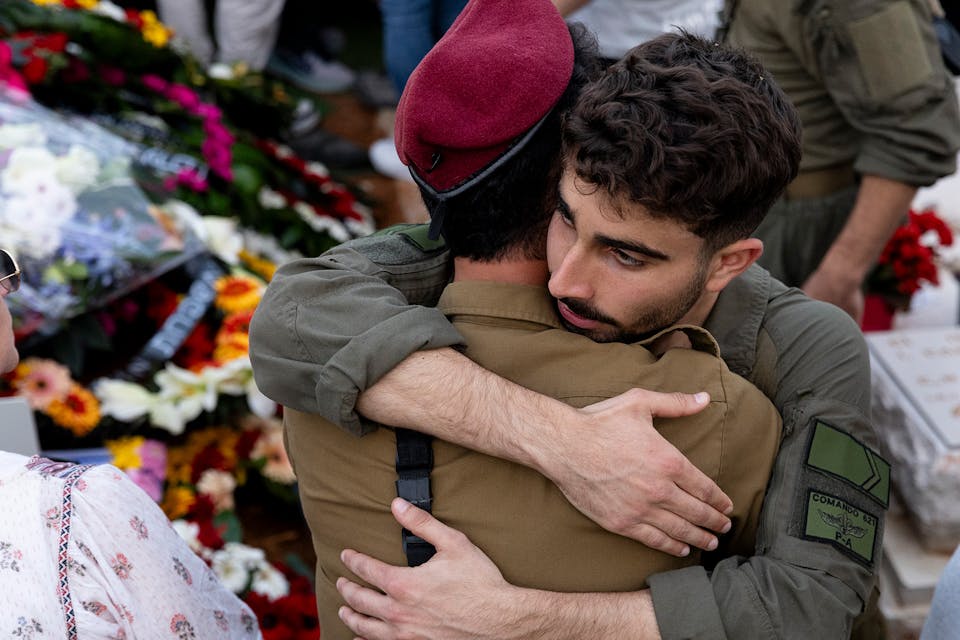
April 8, 2024
What the Demographics of Israel’s Fallen Soldiers Reveal about the Country
Many on the Israeli right claim that the soldiers who fight and die for the country no longer belong to the old secular elite but to a rising national-religious one. Are they correct?
When I began writing this essay in late February, 236 Israeli soldiers had died in the war on Hamas (and the data to be analyzed below are based on this number). Depressingly, by the time I have finished the number is even more: 260 and counting. Who these soldiers are, and what they represent—the identity of those who give their lives for the nation—has been a subject of heated dispute since the war started.
What is the dispute about? On one hand, large segments of Israeli society hold deep resentment against haredi Jews, who, like Israeli Arabs, are exempt from army service and therefore don’t have to risk their or their children’s lives in war. This resentment is especially strongly felt by secular Jews, most of whom fall on the center-left of the Israeli political spectrum.
Many on the Israeli right, on the other hand, have argued for years now much the opposite: that the people at the forefront of defending the state, and those who make the ultimate sacrifice for it, mostly belong to demographics associated with the political right. The seculars who tend to be the most bitter about haredi exemptions might not be draft dodgers, this argument goes, but they still tend to avoid the most dangerous combat roles, preferring technological and intelligence units that usually don’t end up on the front lines. To take one example, in a recent episode of the conservative intellectual Gadi Taub’s popular podcast Shomer Saf (“Gatekeeper”), it was noted that while during the Yom Kippur War kibbutzniks were around a fifth of fallen soldiers, today the secular elite they represented is no longer at the forefront of defending the Zionist project.